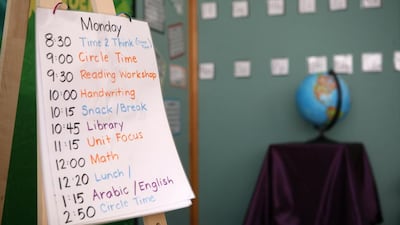If you were to summarise the UAE’s national goals in one sentence, what would you say? Perhaps your description would include words such as innovation, knowledge economy and national capacity?
Naturally, when we think of knowledge economies, and of innovation, we think of science and technology. The social sciences, which make up the bedrock of human understanding, are cast aside as irrelevant.
This would be a mistake, because social science is just as relevant to the UAE’s prosperity and progress – the country should pay special attention to it.
This may sound counter intuitive, but it is actually a crucial point and here’s why: social science research allows citizens to understand their histories, their identities and their futures. It enables citizens to better exploit global and local knowledge and allows the UAE to assert its interests and to reshape global discourse. Without these things, innovation and invention cannot truly benefit national progress.
We live in a time when knowledge moves freely and quickly. Knowledge production has become shaped by global agendas and systems and regulated by dominant rules and ideologies. Today, global knowledge production has politics inherent within it with the consequence that those who have the greatest control over knowledge production have the biggest chance of determining priorities, shaping identities and understanding.
This has two impacts. The first is that narratives about the Arab world become dominated by western voices. The second is that the more knowledge production is governed by global (usually western) frameworks, the more ordinary citizens, without access to western language, education or knowledge banks, are disadvantaged.
In this scenario, inequality in class, social status and education translates into a discrepancy in the capacity to produce and consume knowledge. In a world moving towards knowledge economies, such skills become paramount to survival and, therefore, inequalities of capacity become disparities in earning potential and reproduce social inequalities.
If we think of the world as several countries that compete within the same framework, it is those countries that can best produce knowledge and teach their citizens to exploit it, that will monopolise the most profitable activities.
As such, standards and rules are set in an existing power system that benefits some countries over others. Therefore, social science can and must be used not only to enhance economic activity, but also to begin to rethink the rules of economic engagement.
So, what does this mean for us? This means, that we must begin to build the foundations and infrastructure that guide knowledge production in this country towards the ultimate aim of serving citizens and national progress.
The first step towards this is rethinking our university system in ways that encourage knowledge production that serves local priorities.
Government institutions must ensure not only the production of local knowledge, but its accessibility to the broadest possible segment of society. Knowledge production and access must ultimately serve the purpose of developing social, economic and civic life.
If globalisation is the driving force of the day, and its character is based on free market capitalism and consumerism that does not attend to the public good, an opposing and balancing force must be established within the Arab world to counter and contest this state of affairs.
This opposing force and indeed its engagement with the Arab public, must seek to contest the dominant logic of globalisation to make visible the diverse narratives of Arab citizens, demonstrate their agency and project their voices. The UAE is uniquely placed to lead the Arab world in this arena.
Ghalia Gargani and Sarah Shaer are researchers at the Mohammed bin Rashid School of Government in Dubai

